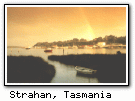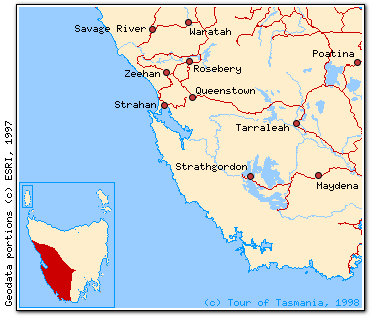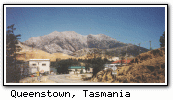  |
||||



|
 The west and south-west regions of Tasmania are known for their wilderness and mineral value. The largest town in Tasmania's west is
Queenstown, but overall this region of the state is by far the least
populated, making it the ideal destination for those seeking beauty and
solitude.
The west and south-west regions of Tasmania are known for their wilderness and mineral value. The largest town in Tasmania's west is
Queenstown, but overall this region of the state is by far the least
populated, making it the ideal destination for those seeking beauty and
solitude.

This page gives a regional overview. For more detailed information, use the links to the left or click the relevant city/town on the map. Attractions South-west Tasmania has some of the most pristine and beautiful wilderness in the world, encapsulated in the Franklin-Gordon Wild Rivers National Park. Bushwalkers are rewarded by spectacular nature sights, and even the less energetic can enjoy the sights along the Gordon River. The coastline of the west itself is daunting, and Strahan is the only town directly on the seaboard. Like most other towns, Arthur River and Corinna are situated slightly inland for protection. There are virtually no permanent settlements throughout the south-west region. Economy
Transportation Coach services run to major towns on the west coast, but for the remote south-western region, visitors will either need to have a car or join an organised tour. Road access to the west coast is either from Tasmania's north-west coast, or the south. © 1995-2010 |
|||



